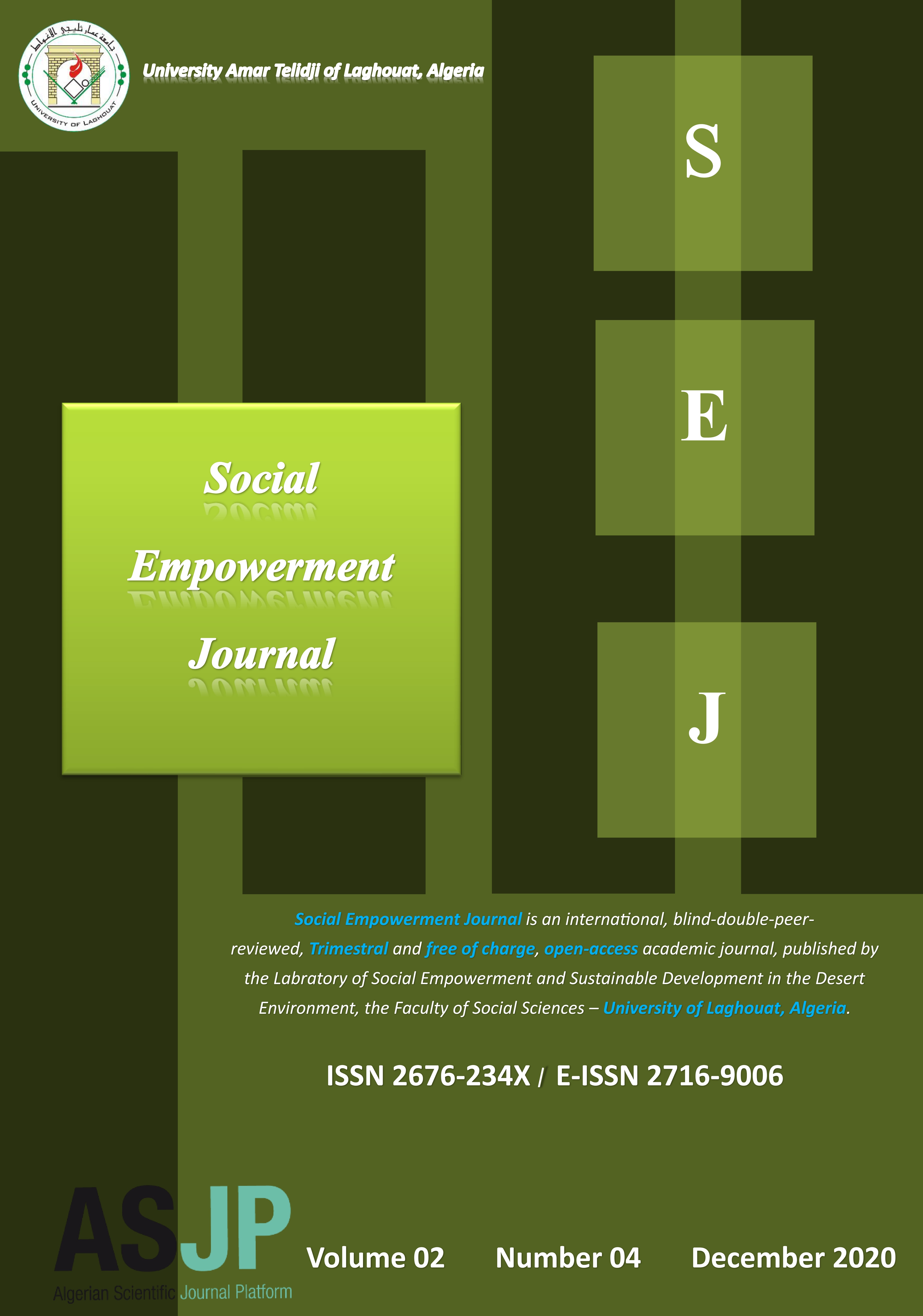The nature of cultural values prevailing in society and its impact on the empowerment of its members: A preliminary study
طبيعة القيَم الثقافية السائدة في المجتمع وأثرها على مدى تمكين أعضائه: دراسة أولية
Abstract
Each society has its own culture, which grows and develops through the ages, because of a combination of overlapping factors. This leads to the occurrence of values that affect individuals and behaviors in various social and professional domains. Thus, people in developed countries are characterized by a positive culture that helps to effectively act in their different activities, leading them to development and progress. Other societies are characterized by a culture dominated by negative aspects, leading to their adoption of lazy and lax behaviors, leading to their backwardness. This confirms the impact of the prevailing cultural values in any society on the success or failure of its members in dealing with various issues, and the extent to which they control their reality and their future
We address through this study, the concept of cultural values and the factors that contribute to their assortment. We also address examples of positive values and their effects on members of developed societies. Prevailing values in Arab and Muslim societies, the negative repercussions on their members, and the impact on their social and economic realities, are also tackled.
Downloads
References
Berry, L.L. (1995), Relationship Marketing of Services Growing Interest: Emerging Perspectives, Journal of the Academy of Marketing Science, 23 (4), 236-245.
Bowen, D. E. and Lawler, E. E. (1995). ―Empowering Service Employees. Sloan Management Review, 36:73-84.
Bowen, D.E. and Lawler, E.E. (1992), the Empowerment of Service Workers: What, why, How, and When, Sloan Management Review, Spring, 33: 31-40.
Carlzon, J. (1987), Decisive Moments, New York, Harper & publishers.
Conger, J.A. and Kanungo, R.B. (1988), the Empowerment Process: Integrating Theory and Practice, Academy of Management Review, 13 (3), 471-482.
Lashley, C. (1999), Employee Empowerment in Services: A framework for Analysis, Personnel review, 28 (3) 169-192.
Rafiq, M and Ahmed, P.K, (1998) A Customer-Oriented Framework for Empowering Service Employees, The Journal of Services Marketing, 12 (5), 379-396.
Taylor E. B. (1871) Primitive culture, (London: Gohn Murry).
Wallace A. (1961) Culture and personality (New York: Random house).
Zemeke, R. and Schaaf, D (1989), The Service Edge: 101 Companies That Profit from Customer Care (New York: New American Library, pp. 65-66.
- Arabic references in English:
Al-Dawri, A. (1983). Economic Backwardness. Dar Al-Matabi'at Al-Jami'iyya, Algeria.
Boufelja, G. (2006). Education for Efficiency. Dar Al-Gharb, Oran.
Boufelja, G. (2010). Cultural Values and Organizational Efficiency. Dar Al-Quds Al-Arabi, Oran.
Boufelja, G. (2011a). The Role of Education in Empowering Vulnerable Groups through Mechanisms of Development. Proceedings of the Third International Spring Institute: Mechanisms of Empowerment of Competencies in the Fields of Social Work and Human Development: Towards a Cultural Approach. Sidi Mohamed Ben Abdellah University, Morocco.
Boufelja, G. (2011b). Obstacles of Arab Thought and Its Challenges. Dar Al-Quds Al-Arabi, Oran.
Al-Jazairi, M. B. A. K. (1988). Culture and its Tragedies. Dar Al-Shihab, Alegria.
Yahya, M. (2009). Empowerment: A Contemporary Administrative Concept. Arab Organization for Administrative Development.

This work is licensed under a Creative Commons Attribution-NonCommercial 4.0 International License.









